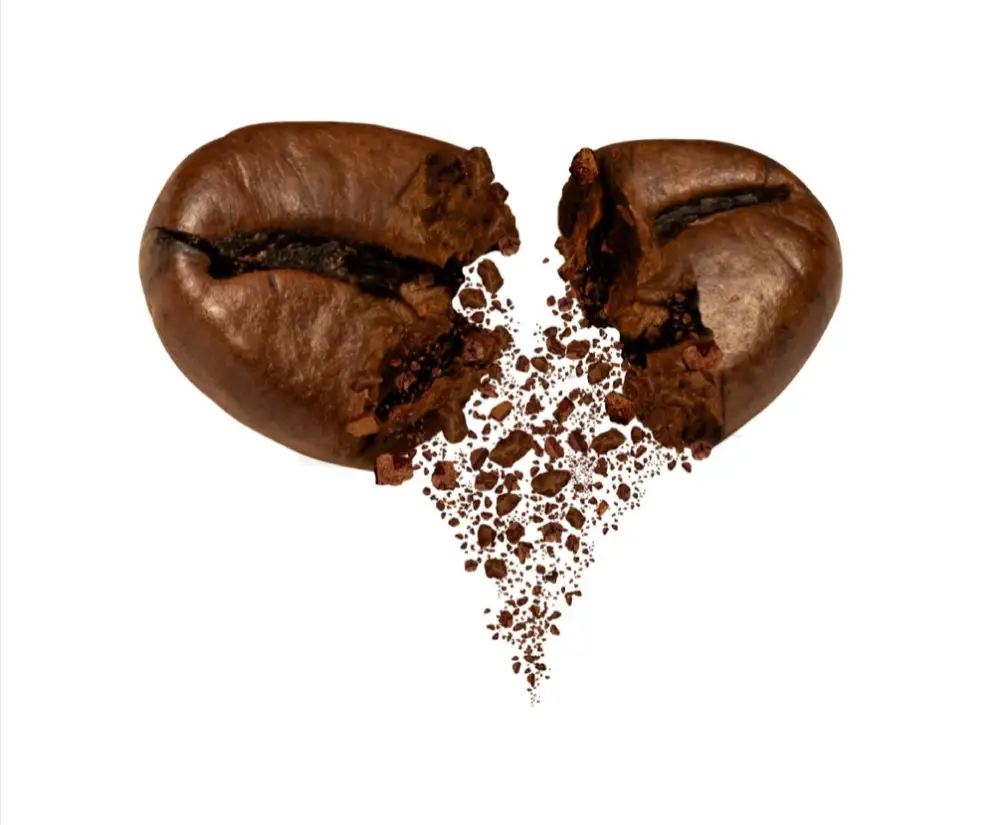Coffee and histamine intolerance: Can the two coexist? Coffee is an aromatic beverage made from roasted coffee beans. When you grind it into a powder, it creates a strong-tasting brown drink that stimulates your central nervous system and helps you stay awake and alert. It’s one of the most popular beverages worldwide.
Is coffee high in histamine? One reason people drink coffee is that the nervous system activation helps them feel more awake and productive. (5) But if you drink coffee regularly, the receptors in your brain that respond to caffeine adapt, and you don’t get the same degree of activation that you did when you drank your first cup.
To get the same amount of stimulation and focus as before, you have to drink more coffee. This means you develop tolerance to the effects of caffeine.
Can Coffee Worsen Histamine Intolerance Symptoms?
You might wonder whether coffee is high in histamine and whether it can worsen histamine intolerance symptoms. Although each person with histamine sensitivity is different, there are some things you should know about coffee and histamine intolerance and the histamine in coffee.

Is Coffee Low Histamine: The Histamines in Coffee
Unlike most fermented foods and beverages, coffee is not known to be high in histamine, but as you’ll discover, this doesn’t mean you can safely drink it with histamine intolerance.
Coffee is not histamine free.
Brewed coffee may contain varying amounts of histamine from the way manufacturers grow and process it. One processing method called the “wet method” can increase the histamine content of coffee beans.
With the wet method, processing consists of placing the coffee in fermentation tanks with water to break down the outer layer of the coffee bean called the mucilage. Then, coffee beans are further processed by roasting.
It’s unclear whether roasting coffee beans removes the histamine created by fermentation, but you should assume coffee beans still contain some histamine from the fermentation process.
Does that mean you can enjoy coffee whenever you like? Unfortunately, it’s not just high-histamine foods that worsen histamine intolerance but also foods and beverages that block diamine oxidase (DAO), the enzyme that breaks down amines, including histamine.
You also have to avoid histamine liberators, foods, and beverages that trigger your own mast cells to produce histamine.
So, coffee can be low in histamine, but still cause problems if it contains histamine liberators, or if it blocks the diamine oxidase enzyme.
That’s why you should approach coffee with caution if you have histamine intolerance; caffeine can block the diamine oxidase enzyme. (DAO).
Therefore, even if the coffee beans you’re using are low in histamine, the caffeine may increase your histamine burden by blocking the breakdown of histamine.
With histamine intolerance, it’s just as important to avoid foods that block DAO as it is to limit foods high in histamine.

Other Ingredients in Coffee That Can Be Problematic
Even if you put aside the histamine issue, drinking coffee isn’t the best option for histamine intolerance. Coffee beans contain hundreds of bioactive chemicals, some of which have health benefits while others can be toxic in large quantities.
Let’s look at some of the other components in coffee that may be of concern if you drink coffee.
Mold Toxins
Coffee beans may contain mold toxins called mycotoxins produced by fungi. Studies show that immature coffee beans contain mycotoxins, although roasting coffee reduces the amount that ends up in your coffee cup.
One mycotoxin, called ochratoxin A, is a weak carcinogen, a cancer-causing chemical. Plus, research shows mycotoxins may be harmful to the kidneys. (1) Choosing decaffeinated coffee won’t save you from mycotoxins either since decaf contains higher levels since caffeine blocks the growth of this toxic mold. (2)
Why are mold toxins a concern if you have histamine intolerance? Mold toxins activate mast cells that release histamine. So, mold toxins increase your body’s histamine burden and create tissue-damaging inflammation.
Pesticides
Unless you buy organic coffee, the coffee that ends up in your coffee cup may contain pesticides. Less than 5% of all coffee is grown using organic methods, leaving lots of room for pesticide residues. On the plus side, a study found that roasting and processing coffee beans reduces the pesticide content by up to 99%. (3)
Acrylamides
Acrylamides are compounds that form in starchy foods exposed to high heat. When manufacturers roast coffee beans, it creates acrylamides and some of the acrylamides end up in your coffee cup.
Animal studies suggest that acrylamides are carcinogenic, although it’s not confirmed in humans. But due to the potential of acrylamides to cause cancer, the Environmental Protection Agency (EPA) regulates the amount in drinking water. (4)
Is Decaffeinated Coffee High in Histamine?
There are two main ways that manufacturers remove the caffeine from coffee. One uses chemicals and also degrades the flavor.
The other method, called the Swiss water method, removes over 99% of the caffeine in coffee without using chemicals. It’s also more environmentally friendly.
However, it’s unclear how these processes affect the histamine in coffee.
Since histamine can increase in coffee when manufacturers roast it and it’s unclear whether decaffeinating removes histamine, it’s best to avoid or limit the amount of decaf coffee you drink too.

Why You Should Limit Coffee with Histamine Intolerance
Coffee and histamine intolerance: good or bad idea? Coffee can worsen histamine intolerance symptoms due to histamine in the coffee bean itself, but also by caffeine blocking the diamine oxidase enzyme that breaks down histamine.
Whether it’s caffeinated or decaf, it’s better to limit the quantity of coffee you drink. Decaf coffee is still a problem since it may contain higher levels of mold toxins that stimulate histamine release.
If you still enjoy a good cup of coffee, try drinking a small amount and monitoring your symptoms closely. Keep a journal too, so you can refer back to it. You may discover that small amounts, a cup or less per day won’t trigger histamine intolerance symptoms.
In my experience, some people can tolerate a cup of coffee daily, while others have symptoms with even small quantities. Your tolerance may be different than someone else’s with histamine intolerance.
Disclosure: Some links below are affiliate links. This means that at zero cost, I will earn an affiliate commission if you click through the link and finalize a purchase.
Low-Histamine Coffee Alternatives
If you’re looking for a hot beverage to sip and don’t need caffeine, herbal teas are a tasty and healthy alternative. Ginger tea and turmeric tea are good choices because they have natural anti-inflammatory activity. If you want a beverage that helps you relax, chamomile tea fits the bill.
If you enjoy the taste of coffee, you can buy coffee substitutes made of grains that replicate the experience of drinking coffee but lack caffeine. For example, Cafix coffee substitute (aff.) is made from roasted barley, rye, chicory, and sugar beets.
Most people I’ve worked with can tolerate it, but if you have gluten intolerance, it’s not an option. As with any food or beverage, start with a small amount and see how you respond. It also has a low acidity.
Key Takeaways about Coffee and Histamine Intolerance
- Coffee may contain varying amounts of histamine, and the wet method of processing can increase its histamine content.
- Caffeine in coffee can block the diamine oxidase (DAO) enzyme, worsening histamine intolerance symptoms.
- Coffee beans may contain mold toxins and pesticides, which can activate mast cells and increase histamine burden.
- Acrylamides, potentially carcinogenic compounds, form during the roasting of coffee beans.
- Decaffeinated coffee is not necessarily low in histamine, and decaffeination methods may affect the histamine content.
- Limit the quantity of coffee consumed with histamine intolerance and consider low-histamine alternatives like herbal teas or coffee substitutes made from grains.
Now, discover whether tea is a good alternative if you have histamine intolerance. Also, find out whether chai tea is safe with histamine intolerance.
References:
- Bui-Klimke TR, Wu F. Ochratoxin A and human health risk: a review of the evidence. Crit Rev Food Sci Nutr. 2015;55(13):1860-9. doi: 10.1080/10408398.2012.724480. PMID: 24874522; PMCID: PMC4247821.
- “Does your coffee contain mycotoxins? – Medical News Today.” 29 Oct. 2015, https://www.medicalnewstoday.com/articles/301759.
- Mekonen S, Ambelu A, Spanoghe P. Effect of Household Coffee Processing on Pesticide Residues as a Means of Ensuring Consumers’ Safety. J Agric Food Chem. 2015 Sep 30;63(38):8568-73. doi: 10.1021/acs.jafc.5b03327. Epub 2015 Sep 18. PMID: 26344013.
- “Acrylamide and Cancer Risk.” https://www.cancer.org/cancer/cancer-causes/acrylamide.html.
- Quinlan, P., Lane, J., Moore, K., Aspen, J., Rycroft, J., & O’Brien, D. (2000). The Acute Physiological and Mood Effects of Tea and Coffee The Role of Caffeine Level. Pharmacology Biochemistry and Behavior. https://doi.org/10.1016/S0091-3057(00)00192-1.

